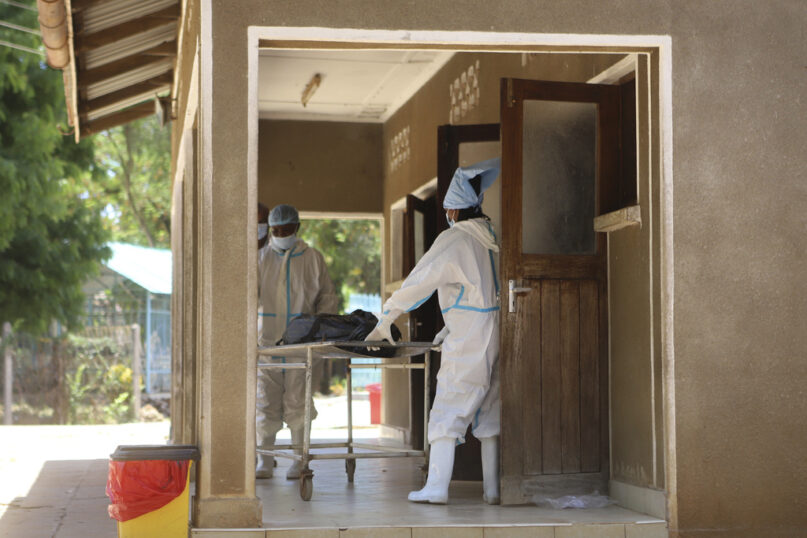NAIROBI, Kenya (AP) — Kenya’s government on Tuesday began handing over to relatives the bodies of 429 members of a doomsday cult at the center of a legal case that has shocked the country.
Exhumed bodies from a vast rural area in coastal Kenya have shown signs of starvation and strangulation. Cult leader Paul Mackenzie is accused of asking his followers to starve themselves to death to meet Jesus and now faces charges that include murder.
Authorities are using DNA testing to help identify bodies and their families. On Tuesday, the first bodies were handed over to relatives. Emotions ran high at the Malindi mortuary as families collected loved ones for reburial. Some wailed, overwhelmed.
Francis Wanje, a father who lost his daughter and seven other family members, pointed at a hearse carrying four bodies.
“We lost eight members of our family,” Wanje said. “We were supposed to get five, but were told that one of the children did not match the DNA.
“So now we have been given only four (bodies). So we are still hoping that perhaps in the future, we are going to get the other four.”
Mackenzie and dozens of his associates were charged in February with the torture and murder of 191 children. The trial begins on April 23. Interior Minister Kithure Kindiki has declared Mackenzie’s Good News International Ministries a criminal organized group.
Mackenzie is serving a separate one-year prison sentence after being found guilty of operating a film studio and producing films without a valid license.
Some outraged Kenyans have asked how authorities didn’t notice any sign of the mass deaths much earlier.
The Kenya Human Rights Commission last week said police failed to act on reports that could have prevented the deaths in the remote Shakahola area. Several reports had been filed at police stations by people whose relatives had entered the forested area.





